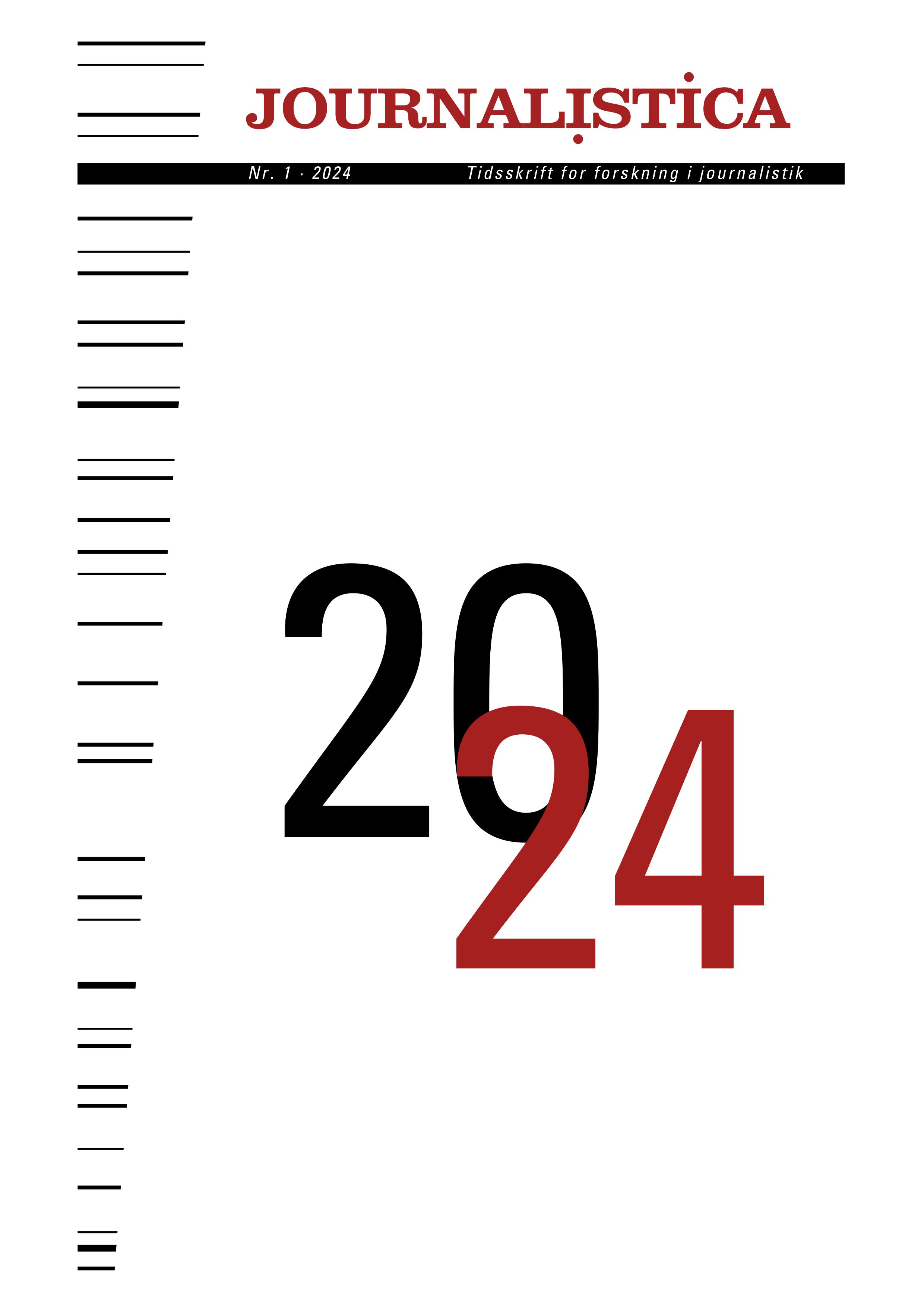An integrated guide to thematic analysis
Combining top-down and bottom-up approaches
DOI:
https://doi.org/10.7146/journalistica.v18i1.150091Keywords:
thematic analysis, qualitative coding, qualitative interviews, index coding, journalism, qualitative dataAbstract
In this section, Journalistica puts a spotlight on research methods used in journalism studies and/or journalism practice.
Listen to the Journalistica podcast episode about this article on Spotify.
References
Arregui Olivera, Cecilia. 2023. Peace journalism revisited: Tracing the multiple tensions around a dynamic concept in the Kenyan news landscape. Ph.D. dissertation, Aarhus University.
Attride-Stirling, Jeniffer. 2011. “Thematic networks: an analytic tool for qualitative research.” Qualitative Research, 1(3): 385-405.
Braun, Virginia and Victoria Clarke. 2006. “Using thematic analysis in psychology.” Qualitative Research in Psychology, 3(2): 77-101.
Brems, Miriam Kroman. 2024. Alternative news use in a high-trust media and political context. The spread and use of alternative media and their democratic implications in the least likely case of Denmark. Ph.D. dissertation, Aarhus University.
Brooks, Joanna, and Nigel King. 2014. "Doing Template Analysis: Evaluating an End-of-Life Care Service." In Sage Research Methods Cases Part 1. London: Sage Publications Ltd.
Creswell, John W. 2014: Research Design: Qualitative, Quantitative, and Mixed Methods Approaches, 4th edition, Los Angeles California: SAGE.
Dahler-Larsen, Peter. 2008. At Fremstille Kvalitative Data. 2nd edition. Odense: Syddansk Universitet.
David, Matthew and Carole D. Sutton 2004: Social Research. The Basics. Oxford: Sage Publications
Deterding, Nicole M. and Mary C. Waters. 2021. “Flexible Coding of In-depth Interviews: A Twenty-first Century Approach.” Sociological Methods & Research, 50(2): 708-739.
Kvale, Steinar, and Svend Brinkmann. 2014. Interview: det kvalitative forskningsinterview som håndværk. 3rd edition. Copenhagen: Hans Reitzels Forlag.
Miles, Matthew B., Michael Huberman, and Johnny Saldaña 2014: Qualitative Data Analysis. A Methods Sourcebook, 3rd edition. Los Angeles: SAGE.
Miller, William L. and Benjamin F. Crabtree 2004: “Depth Interviewing.” In Approaches to Qualitative Research. A reader on theory and practice, edited by Sharlene Nagy Hesse-Biber and Patricia Leavy, New York: Oxford University Press
Morse, Janice M., Michael Barrett, Maria Mayan, Karin Olson, and Jude Spiers. 2002. “Verification Strategies for Establishing Reliability and Validity in Qualitative Research.” International Journal of Qualitative Methods 1 (2): 13–22. https://doi.org/10.1177/160940690200100202.
Rubin, Herbert J. and Irene S. Rubin 2012: Qualitative Interviewing. The Art of Hearing Data, 3rd edition, Sage Publications
Schwartz-Shea, Peregrine. 2013. “Judging Quality Evaluative Criteria and Epistemic Communities.” In Interpretation and Method: Empirical Research Methods and the Interpretive Turn, edited by Dvora Yanow and Peregrine Schwartz-Shea, New York: Routledge. https://doi.org/10.4324/9781315703275.
Silverman, David 2020: Interpreting Qualitative Data, 6th edition, London: Sage.
Downloads
Published
How to Cite
Issue
Section
License
Copyright (c) 2024 Miriam Kroman Brems, Cecilia Arregui Olivera

This work is licensed under a Creative Commons Attribution 4.0 International License.
Forfattere, der publicerer deres værker via dette tidsskrift, accepterer følgende vilkår:
- Forfattere bevarer deres ophavsret og giver tidsskriftet ret til første publicering, samtidigt med at værket er omfattet af en Creative Commons Attribution-licens, der giver andre ret til at dele værket med en anerkendelse af værkets forfatter og første publicering i nærværende tidsskrift.
- Forfattere kan indgå flere separate kontraktlige aftaler om ikke-eksklusiv distribution af tidsskriftets publicerede version af værket (f.eks. sende det til et institutionslager eller udgive det i en bog), med en anerkendelse af værkets første publicering i nærværende tidsskrift.
- Forfattere har ret til og opfordres til at publicere deres værker online (f.eks. i institutionslagre eller på deres websted) forud for og under manuskriptprocessen, da dette kan føre til produktive udvekslinger, samt tidligere og større citater fra publicerede værker (se The Effect of Open Access).




